At this point, you may want to get a behaviorist involved. He’s been checked out for medical stuff recently, yes?
Hi, i need all the advice and help you guys can give me. I have a two-year-old French bulldog and yesterday morning we realized she was a little paralyzed from her hip down she ate and pooped fine. Took her to the emergency room they diagnosed her with IVDD. They told me they need to do surgery on her spine and I can’t afford the surgery process. Is there other options? She’s on steroids and pain medication
Prednisone
Gabapentin
Prazonsin
Please help us she means the world to our family!
Comments
????Good morning. Hoping someone has a little more insight. This morning we woke up to Rontu being his normal self. I fed him, while sitting with him per training recommendation and he was actually fine with that so we felt really positive. But now he has started grumbling/growling literally about everything. He wants attention but growls when you get in his space. He comes up to you but his ears are back and he is grumbling- almost submissive and nervous. It seems so odd to us. This behavior has just started. Now we are a multi-pet household and I have noticed that the cat has started sleeping on Rontus bed while he is watching and he is afraid to move her. (Cats are higher in the pack order in our house) This visibly upsets him, because the beds are their space. So I have taken to moving her so that he can lay on his bed. But it is not just his bed where he is doing this nervous grumbling… since this started this morning, I have just been mildly correcting him when he starts and withdrawing affection. When he stops I give affection or a treat. Any other advice would be appreciated.
Comments
Hello. I have a 15 year old Dachshund, Brody, who is currently suffering from a cervical IVDD injury. This is Brody’s third IVDD injury in his short life, however, it is the most severe. We are not sure what happened this time since Brody was injured when we got home from work. Today is day 7 since Brody went down. While Brody is able to right himself from the lateral position, he does spend most of his time on his side. Brody is able to lift his head and look around, he can scoot himself from one position to another, he has a fantastic appetite, he has feeling in his hind quarters and only deep pain in his front two. My poor boy is not able to consistently empty his bladder and has required cathing; as of today, with the help of lactulose, Brody has been able to empty his bowels, incontinent.
Brody is not a candidate for surgery due to his age and other health conditions, so we are managing him conservatively. Brody has been seen by his regular vet where he was started on prednisone, robaxin, & gabapentin; he also takes CBD and I just started him on tumeric paste. Brody has seen a holistic vet where he had acupuncture done with electro stimulation.
My question is, how long do I give him before we decide that enough is enough? Brody is not in extreme pain, but he does have occasional neck/shoulder spasms that make him scream. I just am afraid of putting him through more than what I should just because I am not ready to let him go. Brody has been my guy for 15 years and I cannot imagine life without him, but I don’t want him to suffer. I have watched Dr. Magnifico’s YouTube videos about giving IVDD dogs time, but what is a realistic timeframe?
Comments
Good morning Pawbly friends-
Having a sudden – very sudden- change in behavior in one of our GSDs. We are trying to think back to figure if there has been any change in routine that might cause this. It is strange- Rontu will start to give a high grumble or start to “talk” now when you approach him, or his bed or his bone or his food. This morning just now, he did that with Butch (one of our others) when he came to me to get a head scratch. We promptly put Rontu in a sit and then told him “bed” which he went to a did lie down. We are going back to square one training and positive reinforcement. My thinking is that this not nipped in the bud right away will lead to full blown food aggression and possession issues, which we do not want. Any other advice would be GREATLY appreciated. Thanks!!
Comments
Hey! Just found your page from YouTube, was wondering if it’d be possible to chat about my cat? Almost certain he has a nasopharyngeal polyp but I am having trouble convincing any vets in the Dallas area to sedate him and take a look without him first getting scans and tests that cost thousands of dollars. Is there anything I should be asking them for differently? He’s been fighting a URI for about 5 months now and we have done six rounds of antibiotics with steroids and antihistamines to help and nothing has stopped his symptoms from returning and we have only now made the connection as to why that is. He has the distinct snore noise while breathing and every other listed symptom associated, I just can’t afford the tests the vets are saying they require, it’s very heart breaking. Any help or wisdom is appreciated, we just don’t have the money to do much else and he is degrading quickly since his last round of antibiotics ended this week. I wish I didn’t sound so sure, we just are panicking that we have wasted so much time and money and may have missed our chance to best this this while we could and now may be unable to. Just heart breaking all around.
Comments
Hi! My 14-year-old shiba, Cody, has a slipped disc. This happened on Thursday (today is Saturday) and he seems to be doing much better. The vet that saw my pup on Thursday said this was a mild case since he was still able to walk. He’s on prednisone, a muscle relaxant and a nerve relaxant and his disc is in his lower back. He’s been on rest and I’ve been icing the area. My question is if there is anything else I should be doing? Any other at home treatments? I read online that strict confinement is key but my dog has anxiety issues with cages/crates but he has been laying down most the day, just walks to go to the bathroom really. Also, ive been noticing his energy is back up and wants to walk longer distances but haven’t let him to make him rest.
Comments
My cat Lucas is still sick with Horner’s syndrome. After many tests have not been able to determine a definitive cause. I would like to look into getting a myringotomy for him so I can know what the fluid in his middle ear is. It is causing him to have serious nasal issues every time he eats. Does anyone know if this procedure – myringotomy – is ever done by a regular vet, or does it require a specialist. And what have others paid. Any information would be helpful. See recent photo of Lucas – with his good eye. The other eye is affected by Horner’s syndrome.
Comments
My cat has herpes & has had worms in the past. She has had 3 litters of kittens before. The first litter was 3 stillborns. The second litter was only 2 babies (one of them being boo of course.) The third happened recently about 4 weeks ago & there was 3 of them (we’re not sure if it was the same father as the last two.) The kittens seemed very healthy but with having other outdoor cats we had to often give them flea baths & even then the fleas would still be there & climb up to their faces but obviously we were hesitant getting their faces. Their mother fed them very well (I could even say maybe over fed them) & they got plenty of rest. The only concern I would say I noticed is how one of them only seemed to use three of her legs, but I didn’t think much about it because I assumed she was young & just still learning how to walk. Then all of a sudden a few hours before she passed she kind of just really wanted nothing to do with anything & just keep sleeping. When I saw she was dead later I noticed brown squiggly things on her, I figured it was either flea eggs or some type of worm. It couldn’t have been the same worms her mother used to have because those were white. We obviously took her away from the others, and then their mother seemed to not want much to do with the two ones still alive. She’s done this in the past when she had her stillborns, she was depressed for a while. I figured it could either be that or my mother read online that it could be because she knows they’re sick & she doesn’t want anything to do with it. So me & my family purchased kitten formula, a bottle, & turkey wet food made specifically for kittens. We’ve made an effort to feed them 15 ml of the formula every 4 hours. We also provided them with warm blankets and shelter since they are lacking their mothers body heat. One of them was acting like the kitten that had just passed, just really not up for doing anything. The next morning we saw them & they seemed fine, then we check on them about 15 minutes later & that same kitten was from before was dead. We’re now making an effort to really keep an eye on this one & do everything we can. He was doing so well this morning, & we’ve been holding him to our chest for more intense warmth & continued to feed him 15 ml of formula every 4 hours. Now for the past 4 hours or so he’s starting to look really lazy like the other two. We’re scared he’s not going to make it very long








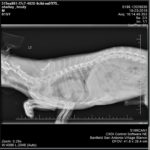
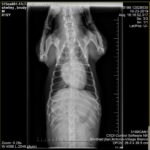
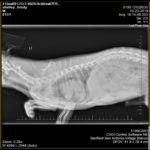

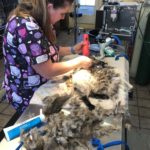
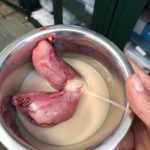
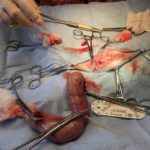
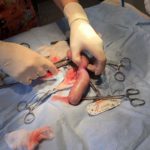
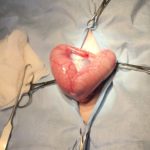
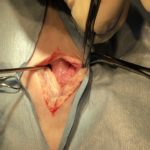
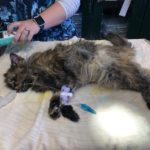
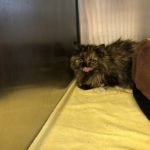

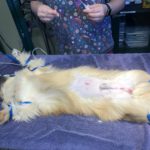
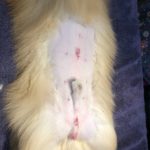
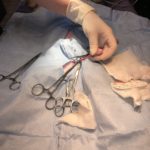


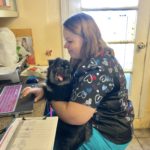



Hello,
I have tons (and tons) of information on my blog and YouTube channel. If you just google my name and ivdd at either of these places you will find loads of advice. Start there. I also think the book below helps many newly diagnosed pup parents.